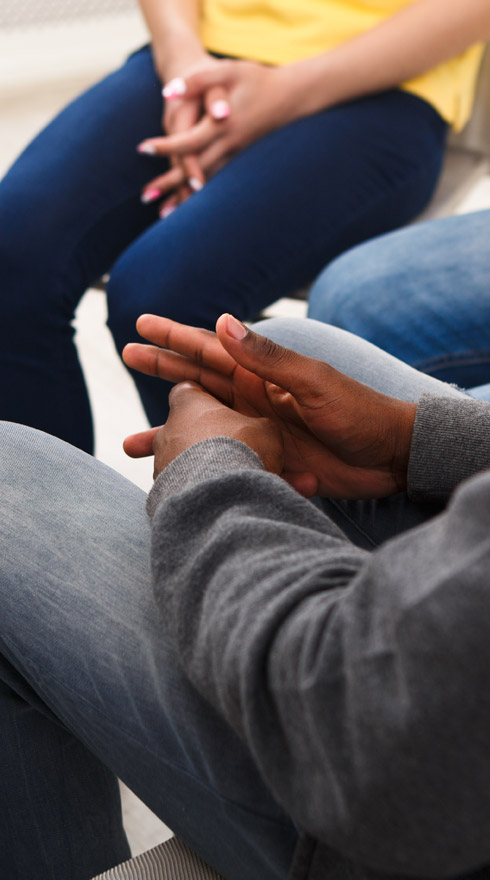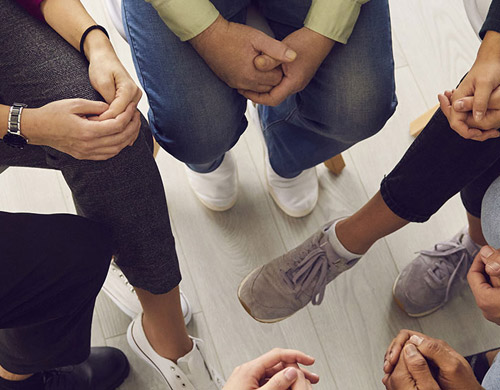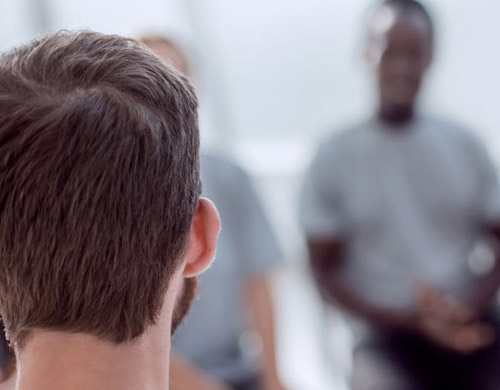Alcohol and drug dependencies introduce challenges when you or a loved one experiences them. Although addiction is a disease, it can be treated when evidence-based rehabilitation methods are utilized. Long term addiction recovery is possible.
Find out how integrated addiction treatment can help you or a loved one in starting and maintaining recovery from substance dependence.
What is Addiction Rehab (Rehabilitation)?
Addiction ‘rehabilitation’ is a broad term that explains the therapeutic and medical treatments that are utilized to help people heal their dependencies on illegal drugs or prescribed medications. Rehab has the best chance of long term recovery success when it is customized to the unique needs of the client and incorporates medically-assisted detoxification, residential or outpatient programs, and relapse prevention techniques also known as aftercare.

Facts & Statistics about Addiction in Alameda
Prevalence of Substance Use Disorder, by Drug Type
(IN THOUSANDS)
- 2,7578.5%Any Substance
- 2,0886.4%Alcohol
- 1,0683.3%Ilicit Drugs
- 2060.6%Pain Medication
Drug- and Alcohol-Induced Deaths by Age Group, California, 2016
- Alcohol-Induced
- Drug-Induced
- 18 to 250.5
- 9.6
- 26 to 354.3
- 13.9
- 36 to 6424.2
- 22.9
- 65+23.7
- 9.4
Drug Use, by Selected Type and Age Group California, 2015 to 2016
- 12 to 17
- 18 to 25
- 26+
- Marijuana*13.2%
- 34.0%
- 13.5%
- Misuse of Pain Medications3.5%
- 8.0%
- 4.3%
- Cocaine0.8%
- 7.2%
- 1.8%
- Heroin0%
- 0.4%
- 0.2%
What are the treatment options available in Alameda?
Integrated rehab is typically the best manner in which to deal with the primary causes of alcohol and drug addictions. Addiction symptoms should be treated but building new life skills encourages you to tackle the problems that caused your dependency on drugs or alcohol.

Private Residential Programs
When you live within the facility where you are receiving therapy, you are part of a residential treatment program. One of the biggest pros is access to continuous treatment and addiction specialists.
Leaving your home environment and entering a treatment facility will protect you against the stressors that contribute your substance abuse. You are less likely to relapse when you complete your residential treatment program in a secure facility where the environment is supportive. Clients who have dual diagnosis, co-occurring disorders and severe dependencies are encouraged to consider an inpatient rehab program. Enrolling in a residential rehab program is an effective way to a sober life, and sustaining it requires ongoing focus because maintaining recovery is difficult during the first year. Once you have finished your residential program you will need to become more autonomous and set new goals and challenges.
Do You Need Help?
I have both daytime and evening office hours available.

Sober Living Programs
Sober living programs are structured with the needed guidance to help people in recovery get what they want from their life without drugs or alcohol. They assist you through:
- Support every day from a house manager
- Developing parameters for positive recovery behavior
- Fostering new friendships with other people who may be going through the same kinds of challenges
Detox Only Programs
With the help of a medically-assisted detox you can remove the substance from your body safely and put an end to to physical dependence. Withdrawing from drugs or alcohol is the body’s natural response to detox, as it gets used to functioning without drugs or alcohol.
Once you tackle the worst of physical withdrawal you will enter the second part of your recovery journey, working through the underlying causes of psychological dependency to end the cycle of abuse.
It is common to develop withdrawal and cravings for a period of time after the substance has been removed from your body. You can reduce the risk of relapse by learning coping strategies to apply to your new life.
Outpatient Programs
The flexible approach to outpatient programs means that you do not have to stop work commitments or family commitments, as you can attend the rehabilitation facility and have weekly treatments in your own time.
Outpatient programs typically provide you with:
- Education around substance misuse
- Therapeutic support and counseling including group therapy or one-to-one interventions – The duration of an outpatient program is unique to your circumstances and lasts between three months to over a year.
Paying for Private Treatment
If you make the decision to continue with private treatment, you can start the process by making a claim via your healthcare provider or pay with your own funds. Most health insurance providers will cover some of the costs of rehab, which includes drug or alcohol detox, the rehab treatment program, medicines you may need and aftercare and support.
The amount of cover offered by your policy is dependent on your provider and the details of your policy agreement. It is a good idea to inquire about your cover prior to enrolling in a rehab program. Our Verify Your Insurance page can help you determine eligibility for cover.
If you do not want cover from your insurance provider, you will be responsible for paying the treatment center directly. Many rehab centers provide payment plans to clients who find the cost to be prohibitive.
Find out if you’re eligible through private health insurance
State Funded Programs
If you have a substance dependence and have limited resources to fund private treatment, you may apply for a state-funded rehab program. With the help of state funding and Medicaid, these programs may support your recovery by offering:
- Medically supervised drug or alcohol detox
- Rehabilitation services and extended support
In order to take part in a state-funded rehab program you will need to give proof that you live in a low income household or that you do not have health insurance:
- Proof of residence
- Proof of income
- Your medical history and details around your addiction
- Proof that you have the legal right to live in the US
You can learn more about applying by visiting https://www.grants.gov/
Click on this booklet – https://www.samhsa.gov/sites/default/files/single-state-agencies-directory-08232019.pdf – to find contact details of your state agency.

State-funded options in Alameda:
Salvation Army Adult Rehabilitation Center
601 Webster Street, Oakland, CA 94607
510-451-4514
oaklandarc.salvationarmy.org/Addiction Research and Treatment Inc (ART)
1124 International Boulevard, Oakland, CA 94606
510-533-0800
www.baartprograms.com/
Maintaining Addiction Recovery in Alameda
Leaving treatment and returning home can prove challenging for people in early recovery. You had the benefits of professional support in a controlled environment at the rehab center. Once you leave rehab there may be new triggers that put your coping skills to the test.
Clients who had severe dependencies find long term recovery more difficult when they leave rehab if they do not have a social support structure. Relapse can happen if you don’t have the appropriate aftercare or support to guide you into your new future.
The following AA/NA meetings are available in Alameda
AA - Alameda Beach Meeting
Open & Discussion: Park Street Park Street Park Street Alameda, CA 94501
Sunday: 5:00 pm – 6:00 pm
https://alcoholicsanonymous.com/aa-meeting/alameda-beach-meeting/CA - Happy Hour Alameda‘COCAINE ANONYMOUS – ALAMED
2001 Santa Clara Avenue, Alameda, CA 94501
Wednesday: 7:00 PM
https://canorcal.org/wp-content/uploads/2019/08/norcal-meeting-list-2019-07-25.pdfNA - Immanuel Lutheran Church – Alameda
Open Literature Study: 1910 Santa Clara Avenue Alameda, CA 94501
Monday: 7:30 PM
https://findrecovery.com/na_meeting/na-meetings-immanuel-lutheran-church-alameda/
Aftercare & Alumni Programs
Aftercare programs extend your rehab program once you return to your daily life. Because relapse rates can be as high as 60%, and because life can be unpredictable, extended support is an important service to support your recovery in the long-term. As you draw closer to the end of your rehab program, we will work you to create an aftercare program that includes the services most helpful to your recovery.
After the successful completion of your rehabilitation program you will be eligible to join an alumni community program so you can remain in contact with staff and peers. This fantastic network allows you access to our Alumni events, which includes ongoing support and mentorship from other members in recovery. You may also want to return the favor by showing support towards other members.
Support Groups (Fellowship Meetings)

Taking part in support groups is vital because fellowship will enable long-term addiction recovery. Recovery support groups such as AA (Alcoholics Anonymous) and NA (Narcotics Anonymous) provide recovery support utilizing the 12-step model and regular meetings. You will learn from other people’s experiences and share your own unique perspectives. Friendship, empowerment and accountability for our actions are key to long-term recovery, and support groups provide many with the necessary tools to stay sober.
Support for Families & Children Affected by Addiction
Addiction damages relationships for everyone in a family unit to different extents. The individual with the addiction needs help, but other family members also need help. Family support groups teach you and your loved ones important coping tools for your own life and allow you to offer more support to the loved one who has issues with substance dependence.
Receive help and support for the Family with the below support groups:
- Parents of Addicted Loved Ones
- SMART Recovery Family & Friends
- NAMI Family Support Groups
- Al-Anon
- Families Anonymous
- Alateen
- Nar-Anon










